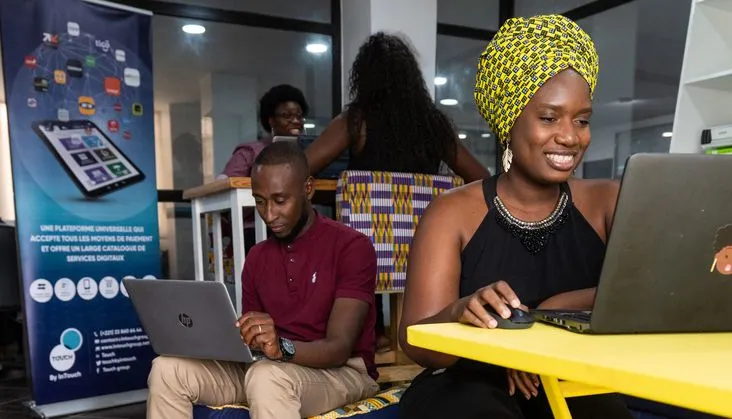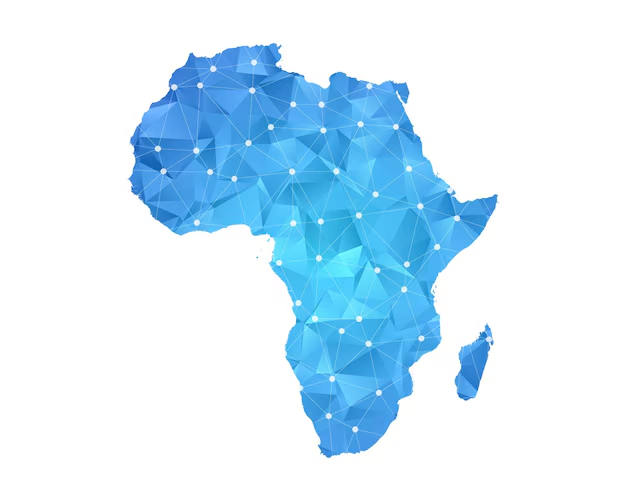Strong Recovery in African Startup Funding Signaled by Surges in H1 2025
The first half of this year was a period of redefinition in the African Startup Ecosystem. It was a period characterised by diversification, the emergence of new top performers, cross-border investments, a merger and, importantly, a record-breaker.
African startups have broken a record set by economic setbacks by securing $1.4 billion in funding in H1 2025 as opposed to raising $800 million in H1 2024, marking a 78% increase. This momentum simply reflects a strong rebound in investor confidence regardless of global economic uncertainties. The comeback happened in June, with startups raising the highest monthly total in nearly a year; a whooping $365 million!
Four months out of six in H1 2025 crossed the $250 million mark, with an average monthly raise of $237 million, far above last year’s $187 million. In case you’re wondering how they raised funds, they did through equities, debt financing and grants. Equity funding dominated, accounting for $950 million (~68% of total capital), up 79% year-on-year. Debt financing surged to $400 million, driven by notable raises like Wave’s $137 million debt deal and Bokra’s $59 million sukuk issuance, while continued support from development organisations and impact funds made increased.
Grants contributed to about $50 million. Few sectors have acted as key drivers of this boom, with Fintech retaining its pride as Africa’s funding magnet. 27% of the total funding and 46% of the transactions are above $10 million (~$640 million).
Key deals in Fintech include:
- The Senegalese Wave Money securing $137 million in debt financing.
- Bokra in Egypt, a wealth management and investment platform that enables individuals to invest in a Sharia-compliant way securing a $59 million sukuk issuance.
- Stitch (South Africa), a fintech that gives Application Programming Interfaces that enable businesses to build and scale financial products across Africa secured $55 million Series B.
- Nigeria’s LemFi, previously known as Lemonade Finance secured $53 million Series B.
- MNT-Halan in Egypt also secured a $50 million bond issue.
While Property tech (Proptech) is emerging as an attractive bet, with Nawy in Egypt closing $75 million, the largest deal in the category’s history on the continent, hearX led Healthtech in its breakout moment in a $100 million merger with U.S.-based Eargo, signaling international expansion ambitions. Also, Energy & Climate Tech attracted about $300 million (~21% of total), reflecting growing global and local interest in sustainability, renewable energy, and agritech innovation.
The Big Four markets; Egypt, South Africa, Nigeria, and Kenya accounted for 84% of funding. Egypt secured $330 million, South Africa $274 million, while Nigeria and Kenya secured $158 million and $126 million, respectively. Surprisingly, Senegal emerged as a top performer thanks to Wave’s mega-deal; a debt finance led by Rand Merchant Bank.
While Ghana, Côte d’Ivoire, Togo, Rwanda, and Uganda also had significant funding activity. Startups are increasingly attracting funding from investors outside their home countries, especially from North Africa to Sub-Saharan Africa and vice versa, thereby strengthening cross-border investment. Clearly, there have been evidence of growing deal-size maturity as 238 startups raised at least $100K in H1, with 108 securing $1M+ and 39 closing deals worth $10M or more. Over 330 investors participated, with strong representation from Development Finance Institutions (DFIs) like British International Investment (BII), Proparco, and DEG.
21 exits were also recorded in the period, already matching or surpassing the total number of exits seen in both 2023 and 2024 combined highlighting increasing liquidity in Africa’s startup ecosystem. These happenings reflect significant changes in the African startup ecosystem. So, let’s see what this means for Africa going forward.
- Diversification would pay off as the rise of proptech, healthtech, and climate innovation points to a healthier and more balanced ecosystem even while fintech still dominates,
- Debt might not be that much of a big deal for African founders. The spike in debt funding shows African startups are finding alternative financing routes beyond traditional equity, appealing to more risk-conscious investors.
- M&A activity is heating up: The hearX-Eargo merger deal could inspire more cross-border mergers, especially in healthtech and SaaS sectors.
- Investor patience is evolving from chasing hypergrowth at all costs to looking for sustainable growth models with proven revenue streams.
- Lastly, regional hubs are rising due to countries like Senegal, Ghana, and Rwanda attracting big-ticket funding, hinting at a slow shift away from the Big Four’s absolute dominance.
The first half of 2025 has been a defining period for African startups. Record-breaking funding numbers, increased sectoral diversity, and maturing deal structures are shaping an ecosystem that is not only bouncing back but also evolving. As global attention turns toward emerging markets, Africa’s startup scene appears poised for an even stronger second half of the year







